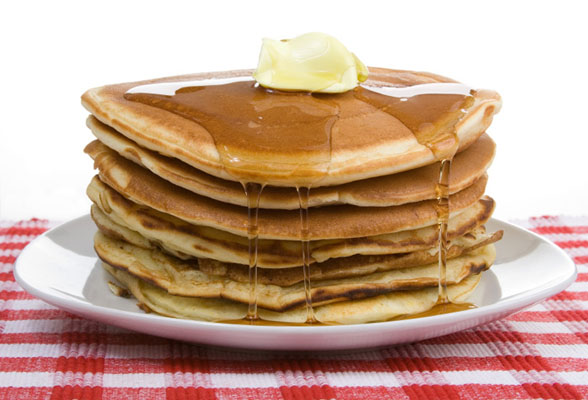Shrove Tuesday is a glorious excuse to feast like the Hebrews, swim in Willy Wonka’s Chocolate Factory guilt-free, and do what hobbits were made to: have a second breakfast. Christians should be notoriously bold about eating, and they should be notoriously known for getting together to eat. As a matter of fact, eating together is the virtue that toppled empires. While the Egyptians ate at elaborate banquets, God sent locusts to consume and eat their banquets. Of course, God will not allow competing parties in his world. If they attempt to compete for Banquet Hosts, God will consume them.
So, how do we enter into God’s banquet? Where do I RSVP? The requirement for entrance to this banquet is not acute taste buds or a culinary degree; it is the badge of love. “Better a dinner of herbs with love, than a fatted calf with hatred and disobedience,” says the Lord.
In our evangelical attempts to outdo the ascetic movement, we often talk timidly about the extra slice of pizza we had, or we say even apologetically, “I sure ate a lot last night!” But in the Bible, apologies about eating can seem outright tasteless. We don’t have to dig too far in the Bible to see that the idea of “fatness” carefully considered is a good thing. For example, the word “anointing” means to “make fat.” The Hebrew word Dashen means to be fat, grow fat, and become fat.
In fact, Psalm 23, a favorite to many, uses that precise language. In Hebrew, it reads: “You fatten my head with oil and my cup overflows.” Shrove Tuesday is an additional opportunity to criticize our sensitivities, wash away the grammar of cultural pietism, and embrace the fatty bacon like a gift from God.
God is not stingy about butter, and under ordinary conditions, as Elisha asked for a double portion of the Spirit, children of the living God should ask for a double portion of pancakes.
And this leads me to my final point in this brief but fat-filled exhortation, and that is that we only abuse the gift of food when we forget that food is a blessing to a forgiven community. Unrepentant communities don’t know how to eat correctly, and as a result, their food is merely consumed and not celebrated.
On the other hand, the Church’s table is good and right and wholesome and beneficial because it is covered by the blood of God’s Lamb, Jesus Christ. Jesus was food for us, and now we eat the food of the table with the hearts of forgiven saints. Solomon says, “He who conceals his sins does not prosper, but whoever confesses and renounces them finds mercy.” The mercy of confession is what makes food glorious and delicious.
Tomorrow, we are going full-steam into a 40-day culture of repentance. For many, this will mean fasting and meditating and focusing in greater detail on our lack of gratitude for the gifts of God. We have eaten without understanding, communed without confession, watched without discernment, entertained ourselves without the table, and found refuge in feeble fortresses made by human hands. We have rebuked our children for their lack of love while we have been unloving to our spouses and our own children.
We have 40 days to flesh this out, but tonight, eat well, laugh goodly, and love your neighbor like God loved the fat of the lambs in Israel’s sacrifices. Don’t be shy! Jesus gave his life for the abundant table we share tonight!
Let us pray:
O, Lord, how beautiful these last days have been! Prepare us now on this last day of Epiphany for the gifts of your table. When we forget you, we forget life itself; therefore, give us the fat of Israel’s sacrifices, yay more, give us the fulfillment of Israel’s sacrifices, Jesus himself. For the riches of Solomon’s house and the banquets of Pensacola do not come close to the glory of the marriage Supper of the Lamb. As we stand at the end of Epiphany and the entrance gate to the Lenten Season, may our hearts long for the kneeling bench of forgiveness, the peaceful ethos of a clean conscience, and the benediction of a loving God. Cleanse our hearts that we may eat as unto the Lord and may live as unto the Lord, for we pray unto the Lord of forgiveness who declares our hands clean to eat and drink, amen!













